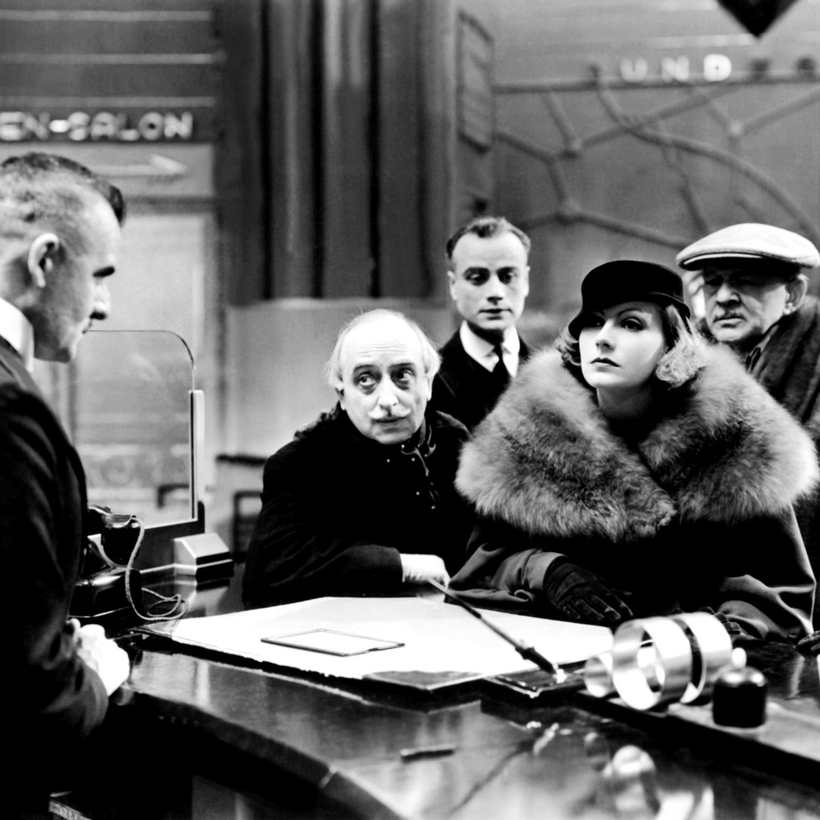Hotels are no longer what they used to be. Some, like the Carlyle in New York or Claridge’s, in London, hold on to the Old World with slippery fingers. The Plaza’s only charm is thanks to echoes of Eloise, and they’ve ruined even that with the dizzying food hall that ran the length and width of the hotel’s basement up until the pandemic. It’s hard to imagine what once was.
Out of all the things to complain about, this is of relatively minor importance. Yet, in the last year or so, I’ve spent a lot of time in hotels, and the change has been staggering. What shocked me the most was a new insistence on minimizing interactions with actual people. After 24 hours of catastrophic travel, I arrived at one hotel to find a lobby with no reception desk. Instead, a wall of iPads greeted me, inviting me to check myself in. Many hotels have paused their room service and daily housekeeping, pandemic precautions that have not gone away.

Perhaps for some, an absence of social exchange comes as a relief. For me, it’s the antithesis of why I would stay at a hotel. As I checked in and checked out, I kept asking myself, What is a hotel without the people that run it?
Ludwig Bemelmans knew the answer. Most recognized as the creator of the beloved children’s-book heroine Madeline, and immortalized by the bar in the Carlyle, for which he did the murals ahead of its opening, in 1947, Bemelmans was also a prolific writer. His work drew, in large part, from his travel adventures as well as his tenure as a hotel worker.
Bemelmans, who was born in 1898 in Merano, Italy (at the time, a part of Austria-Hungary), spent much of his childhood in and around hotels. His father, Lampert, was a hotelier who left his family for Bemelmans’s governess, who committed suicide after Lampert left her for yet another woman. To escape the sordid mess he’d made, Lampert moved to America for work. In his absence, Bemelmans’s uncle placed Ludwig under his watchful eye through apprenticeships at several of his hotels in Austria.

After Bemelmans supposedly shot a headwaiter who had taken to beating him with a leather whip, his family gave him a choice: reform school or America. Armed with a handful of recommendation letters from his uncle, Bemelmans, 16, was shipped off to New York and began a job at the Ritz-Carlton, on 46th Street and Madison. He would spend the next 15 years working his way up from busboy to assistant banquet manager.
Hotel Splendide, Bemelmans’s 1941, out-of-print memoir, which is being reissued by Pushkin Press this month, is a delightful passport to a long-lost era. The Splendide poses as a thinly veiled Ritz and provides the setting for a tapestry of eccentric characters and outlandish happenings, drawn from Bemelmans’s experiences working there: the Cuban marquis is getting rid of the car that killed his lover; the Senegalese dishwasher longs to be a doorman; the murderous waiter is impossible to fire. All within the gilded, decorated walls of the hotel.

The book, which is composed of 15 rollicking stories accompanied by Bemelmans’s own illustrations, is a testimony to the fact that all hotels have seams, and it is how well they are hidden that marks the quality of the hotel. Their underbelly is all the same, as Bemelmans writes: “The tender plant that is morality does not thrive in a grand hotel, and withers altogether in its private rooms.”
Working in hospitality lends itself to both the dramatic and the comical, and elements of both course through the book, which is billed as a true account, though Bemelmans cast some uncertainty on this point in a comment to The New York Times in 1941: “Often what I write is true. But it is almost a game. ‘This,’ an editor will say, ‘is fiction.’ ‘No,’ I answer, ‘that is true.”’ Apparently, his editor always guessed wrong.
“The tender plant that is morality does not thrive in a grand hotel, and withers altogether in its private rooms.”
In the film Grand Hotel, which won the Oscar for best picture in 1932, one of its permanent residents remarks, “Grand Hotel … always the same. People come, people go. Nothing ever happens.” It’s a red herring of a line, because for the rest of the film, the web of guests, from barons to ballerinas, unfurls and collides in riveting and deadly ways.

Grand Hotel makes a remarkable companion to Bemelmans’s slim volume. Both capture the organized chaos that hotels breed—What else can you expect when people from different corners of the world all gather under the same roof?—and suggest that whoever lies beyond that threshold is bound to be interesting.
Bemelmans knew that a good hotel should run the risk of being haunted, whether that’s by ghosts, guests, staff, or secrets. As he writes, “In a hotel too much is happening—the guests eat and drink, laugh and complain as at any time, the orchestras play in the restaurants, the hum of conversation is not a shade lower.
“Whatever is unpleasant is done quietly. When someone has died in a hotel, two men carry a plain basket out of a side door early in the morning.”
A new edition of Hotel Splendide, by Ludwig Bemelmans, will be published by Pushkin Press on November 29
Marlowe Granados is a journalist and the author of the novel Happy Hour
